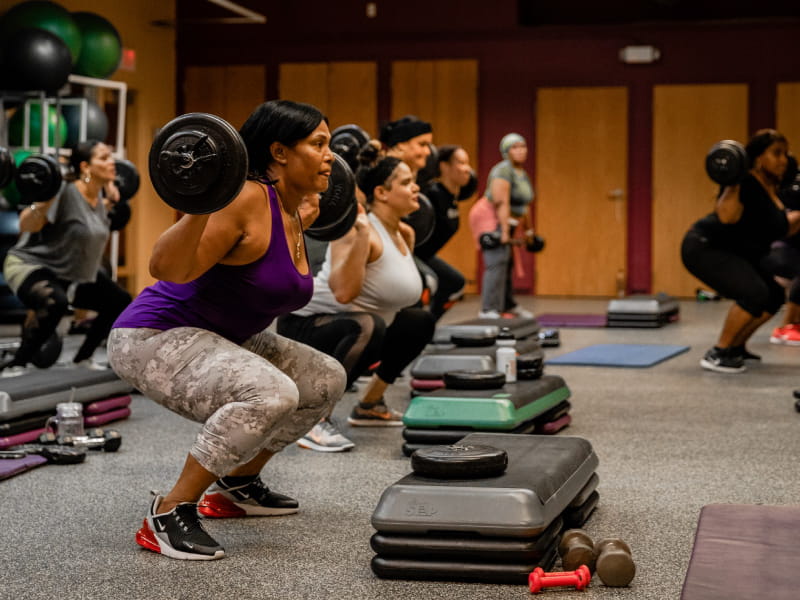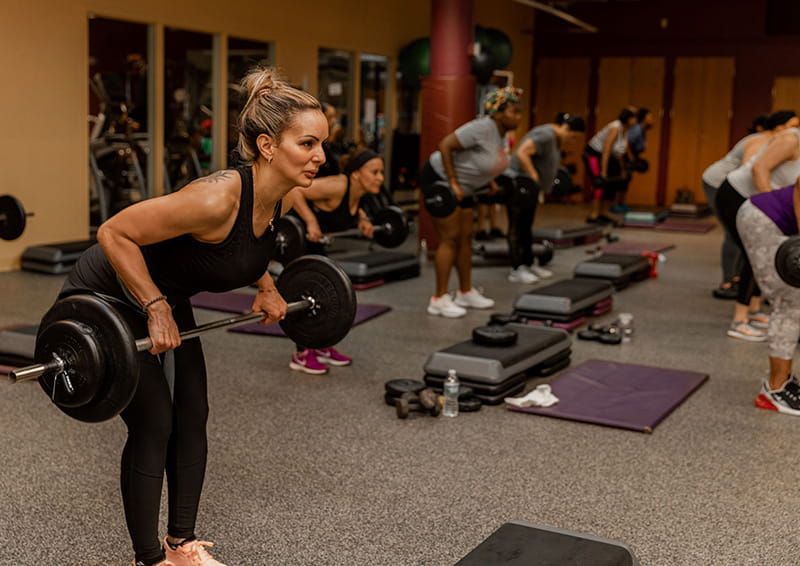At nonprofit fitness center, women find strength in numbers
By Diane Daniel, American Heart Association News

After more than a decade of driving a Boston city bus, Lorene Thomas was exhausted, overweight and depressed.
"Sitting in that seat all the time, I gained weight and had high blood pressure," Thomas said. The 64-year-old also felt traumatized after several scary incidents, including being threatened by a man with a knife.
A visit four years ago to HealthWorks Community Fitness, a nonprofit targeting lower-income women, turned her life around.
"It's just a few blocks from my house and I'd always passed by there," Thomas said. "I knew I needed to do something."
Since starting to exercise, Thomas, who retired two years ago, has lost and kept off 57 pounds, lowered her blood pressure to a normal range and now has enough energy to walk 3 miles several times a week. Her favorite gym activities are the treadmill, elliptical trainer and yoga classes.
Beyond physical changes, Thomas said she feels better about herself and has increased her social connections.
"I could feel my confidence coming back and my insecurity disappearing," she said. "That gym is the best thing that ever happened to me."
Thomas is the embodiment of what HealthWorks Community Fitness strives to do, said managing director Gibbs Jennifer Saunders.
"The exercise piece is, of course, huge," Saunders said. "But it's even more than becoming healthier and getting that adrenaline. It's also about having that feeling of accomplishment. If I can do this, then I can do all these other things."
The center, which opened in 2008, serves about 2,000 women and children a year from the neighborhoods of Dorchester, Mattapan and Roxbury, which have majority Black and Latino populations. After a four-month closure because of COVID-19, it reopens Monday with physical distancing and other safety features added.

"A lot of people come to us with chronic diseases, such as hypertension, Type 2 diabetes, heart disease and also obesity and aging issues," Saunders said. "We work on management of chronic diseases as well as intervention to prevent them in the first place. We also address basic lifestyle choices, including nutrition and smoking."
More than a quarter of the members are referred through a prescription program from their primary care physicians, especially at the nearby Codman Square Health Center. For those referrals, the first three months are free. Membership fees, which are charged on an income-based sliding scale from $10 to $30 a month, include access to the 10,000-square-foot center and a variety of small-group training programs.
Saunders encourages women to start with an eight-week progressive program called Woman, Be Fit, which she started after she came aboard in 2013.
"Instead of saying, 'Here's your membership,' where they might try something once and never come aback, this is a way of engaging people," she said.
In Woman, Be Fit, which costs a one-time fee of $40, up to 20 women meet weekly and also pledge to work out on their own at least twice a week and keep a food journal. They receive individualized fitness training and nutritional guidance, including cooking demonstrations in the center's community teaching kitchen. For women with diabetes, the program also works to lower blood sugar levels and increase insulin sensitivity.
An important component of the program is increasing aerobic capacity, Saunders said.
"In order to change the physiology of your body, you have to push your system out of its comfort zone," she said. "Just chatting on the treadmill isn't helping with that."
More than 600 women have been enrolled in Woman, Be Fit since 2015, with a completion rate of 94%, Saunders said.
"So much of the success is due to bonding and accountability. They make friends. They call each other. There's social cohesion," she said. "And a lot of the ladies repeat the program."
The center also runs the Fitspuration youth fitness program for boys and girls ages 8 to 12, as well as one for victims of domestic violence in conjunction with a women's shelter.
HealthWorks' activities are funded by membership fees and grants, as well as $100,000 in funding from the American Heart Association's Social Impact Fund.
Regardless of the specific target groups, the goal of all adult programs is empowering women through health, just as retiree Thomas has done.
"I've seen so many women like me come a long way," said Thomas, who volunteers at the front desk and gives tours to newcomers. "I see them changing and getting stronger. We're building up our bodies and our minds."
If you have questions or comments about this story, please email [email protected].





